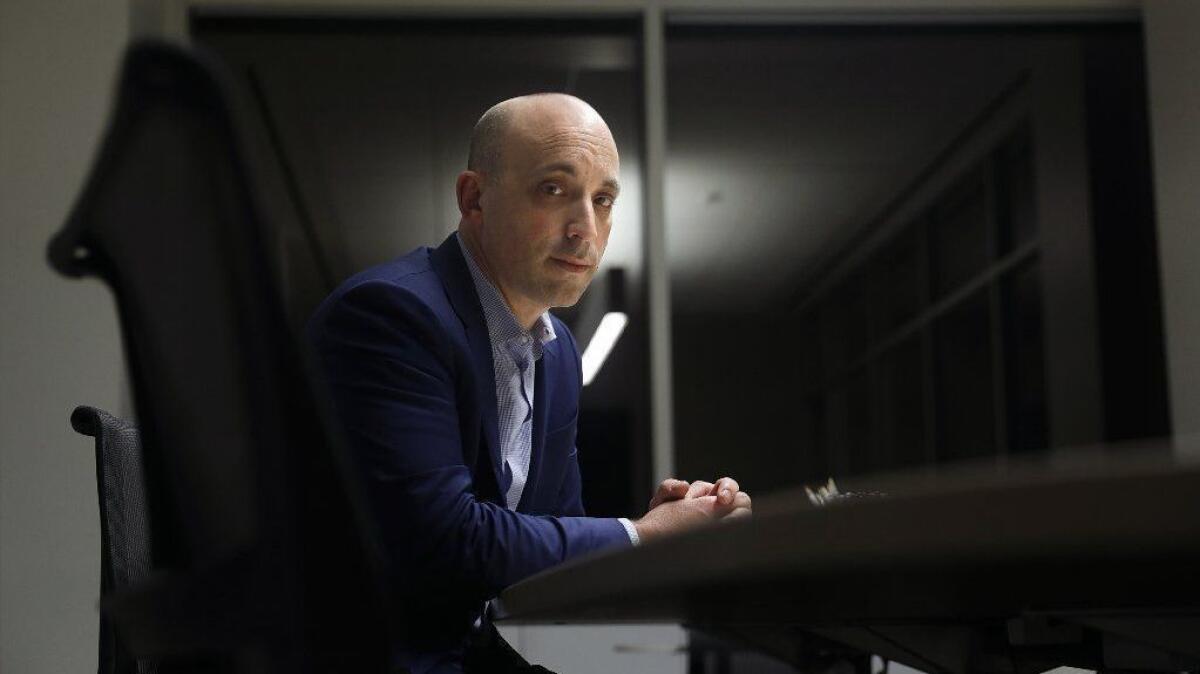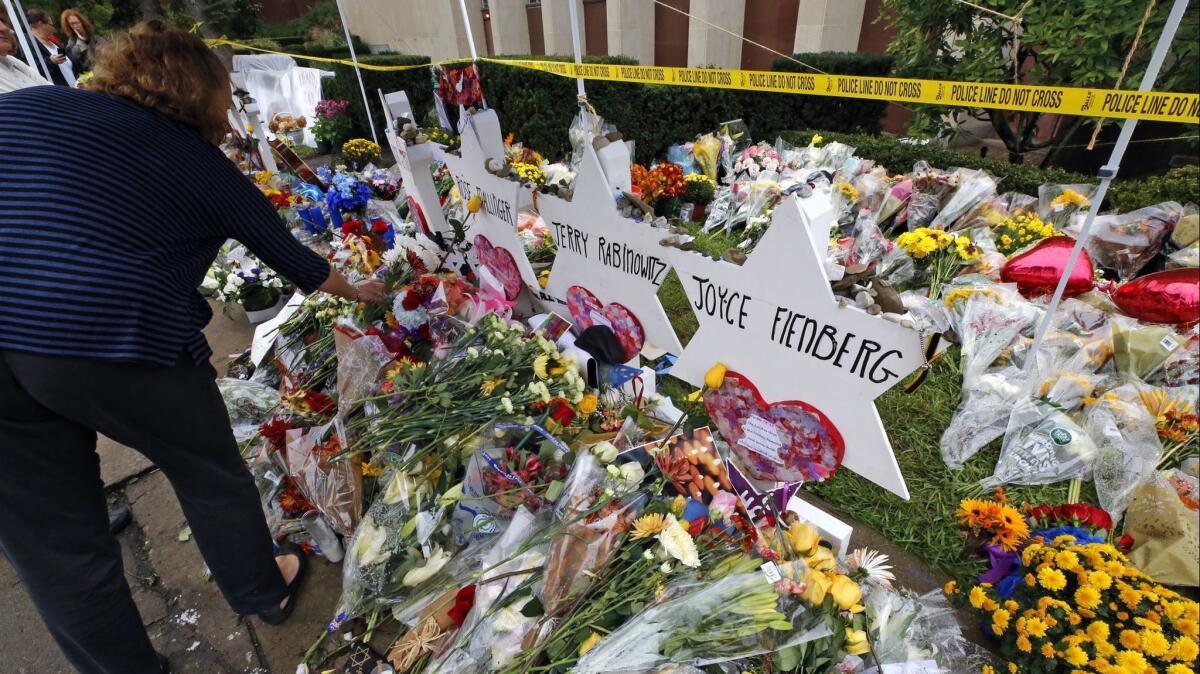Q&A: Anti-Semitism is on the rise in America. The head of the Anti-Defamation League explains why

- Share via
When 11 people were killed in the deadliest anti-Semitic attack in modern U.S. history at Pittsburgh’s Tree of Life synagogue in October, many Americans saw it as a shocking one-of-a-kind moment of raw hate.
For the Anti-Defamation League, it was part of a larger trend.
The civil rights group, which has tracked anti-Semitic incidents since 1979, released a report months earlier documenting an alarming rise in hate incidents against Jewish people and institutions. In 2017, anti-Semitic incidents jumped 57% over the previous year. Hate crimes against Jews grew by 37% in the same period, according to a separate FBI analysis.
“It’s not exactly a good sign that we seem to be in a growth industry,” said Jonathan Greenblatt, who 3½ years ago went from directing the Obama administration’s Office of Social Innovation and Civic Participation to leading one of the nation’s most prominent civil rights organizations.
The Times spoke to Greenblatt, the organization’s national director and chief executive, about the level of anti-Semitism in the U.S., the state of civil rights, the Trump presidency and Israel. Questions and answers have been edited for length and clarity.
In 2017, the ADL counted 1,986 anti-Semitic incidents. It’s the biggest annual jump since the ADL began its tracking four decades ago. Why the steep increase?
We’re living in a charged political environment. Things are polarized in ways we haven’t seen in recent memory. People are on edge in part because they are following their leaders. When leaders at the highest levels use incredibly intemperate language and repeat the rhetoric of extremists, we shouldn’t be surprised when young people — let alone others — imitate what they see.
Extremists feel emboldened by this. We know because we’re tracking extremists. We’re reading what they write on social media and what they’re saying in chat rooms.
The third thing is social media. Anything goes on these platforms that have created a scenario where prejudice can grow at a volume at a velocity we have never seen before.
When you talk about leaders who use “intemperate language” and the “rhetoric of extremists,” are you talking about President Trump?
Whether you’re the president of the United States or the president of a university or the president of the Parent Teacher Assn., I think people in positions of authority need to lead and failure to do so creates environments in which people think it is suddenly OK to act wrongly.
Certainly the president, among everyone, has the biggest bully pulpit.

Would you describe the president as racist?
I think he’s really used racist language at times, yeah. Some of the ways he’s described, for example, people of Mexican descent are rather hard to square with what you expect from the commander in chief.
But we focus less at ADL on what people are than their actions. For example, I don’t know what’s in Rep. Steve King’s head or in his heart. All I know and all I can do is take him at his word in terms of what he says and that’s what we found so deeply problematic.
One issue you’ve spoken up on is the Women’s March, which has been plagued by allegations of anti-Semitism among its leadership. Has it done enough to gain ADL support?
The ADL didn’t have an official position on the Women’s March in 2017 and we don’t have an official position in 2019.
We deeply believe in the principles behind the Women’s March about standing up for gender equality and against all forms of intolerance. We have raised questions in the past about some of the leaders’ commitment to these issues and their willingness to stand up for them in a clear and consistent way across the board.
One of the most controversial trends in activism is the Boycott, Divestment and Sanction movement. Where’s the line between legitimate criticism of Israeli policy and anti-Semitism?
We have called out the BDS movement for a few different reasons and much of it is based on the notion that Natan Sharansky pioneered years ago on anti-Semitism. It’s anti-Semitism when it involves, specifically as it relates to criticism of Israel, delegitimization, demonization and double standards.
There are many people who get caught up in the BDS movement who are not anti-Semitic at all and who see it as a form of social protest. I understand that. But its strategy is to demonize and delegitimize the state of Israel. We find that deeply wrong.
“If you really want to find out how effective a wall is, just ask Israel — 99.9% effective and our wall will be every bit as good as that, if not better.” Trump recently said this in his bid to build an expanded border wall. What do you make of his comments?
I don’t think it’s analogous, period, end of story. The Israel comparison is not one that’s really appropriate or accurate.
More to Read
Sign up for Essential California
The most important California stories and recommendations in your inbox every morning.
You may occasionally receive promotional content from the Los Angeles Times.











